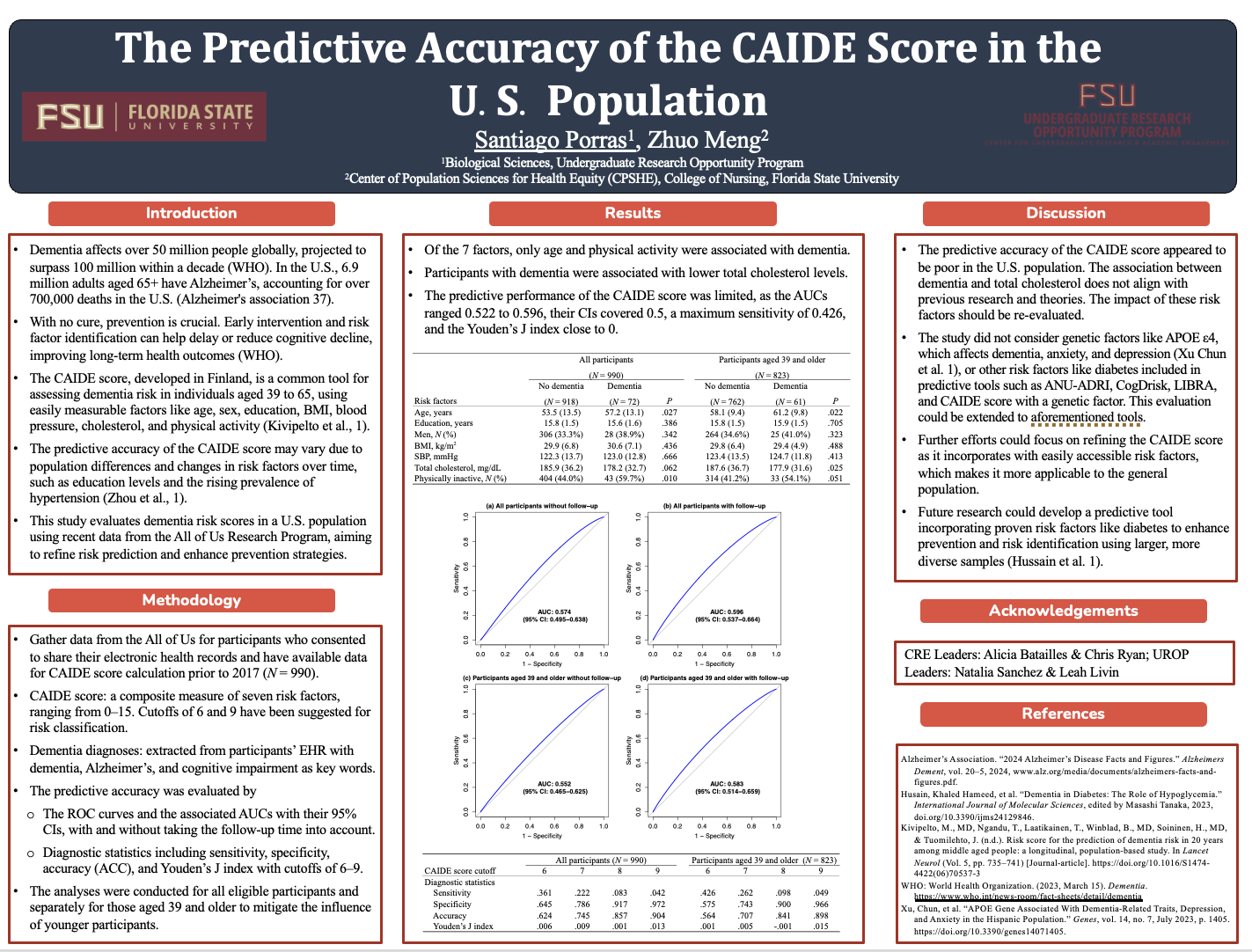Research Symposium
25th annual Undergraduate Research Symposium, April 1, 2025
Santiago Porras Poster Session 2: 10:45 am - 11:45 am/ Poster #247
BIO
Hi! My name is Santiago Porras, and I am a sophomore from El Salvador. I am passionate about neuroscience and genetics, driven by a lifelong curiosity to understand the complexities of the human body. My goal is to become a medical doctor who not only applies practical knowledge in patient care but also contributes to advancing scientific research. I hope to bridge the gap between clinical practice and research, making meaningful discoveries that can improve lives.
The Predictive Accuracy of the CAIDE Score in the U.S. Population
Authors: Santiago Porras, Zhuo MengStudent Major: Biological Sciences
Mentor: Zhuo Meng
Mentor's Department: Center of Population Sciences for Health Empowerment Mentor's College: College of Nursing Co-Presenters:
Abstract
Aging has become a critical public health issue in the United States due to increasing life expectancy and dementia prevalence. The Cardiovascular Risk Factors, Aging, and Dementia (CAIDE) score was developed to assess the risk of dementia. However, its performance may be challenged by population demographics and the evolving nature of risk factors. This study aims to validate the predictive accuracy of the CAIDE score, focusing on the U.S population, using data from All of Us. Participants who consented to share their electronic health records (EHR) data and had data for CAIDE score calculation prior to 2017 were included in the cohort. Their scores were calculated accordingly, and their clinical diagnoses of dementia and cognitive impairment were obtained from the “Conditions” domain. The predictive accuracy was assessed using receiver operating characteristic (ROC) curves and area under the curves (AUCs), along with sensitivity, specificity, accuracy (ACC), and Youden’s J index, both within the entire cohort and a subsample of participants aged 39 to 64. Among all 990 participants, the AUC was 0.574 [95% CI, 0.498–0.636] without incorporating follow-up time and 0.596 [95% CI, 0.535–0.663] when follow-up time was included. Correspondingly, for the 583 participants aged 39 to 64, the AUC was 0.510 [95% CI, 0.411–0.607] and 0.589 [95% CI, 0.499–0.692]. The CAIDE score's performance in the recent U.S. population study appeared suboptimal. The score should be used cautiously, with further improvements needed to improve its predictive performance.
Keywords: Dementia; cognitive impairment, CAIDE, predictive accuracy


